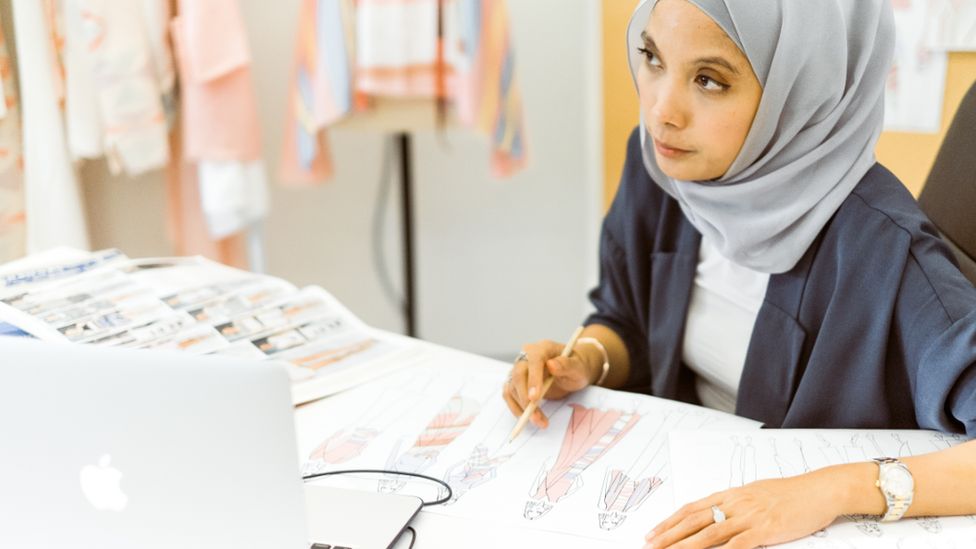Small fashion brands in Asia hit by coronavirus impact
- Published

For Nurul Zulkifli, founder of the Malaysian-based clothing brand Mimpi Kita, now should be the busiest and most profitable time of the year.
In the run up to the Muslim celebration of Eid, her Islamic clothing is usually big business as she sells up to 90% of the year's sales at this time.
"It's something like Christmas where you buy a lot of stuff - the shopping time of the year," she said.
But with the coronavirus pandemic, she says her sales have dropped by half. She puts this down to lockdowns, firstly in China, which disrupted her supply chain, then in Malaysia and the UK.
Her stores across Malaysia were forced to close, as were her stockists in London's trendy Notting Hill.
"Not everyone in Malaysia really shops online. Some people like to try it on, so we're lacking on that."
Ms Zulkifli says layoffs and uncertainty mean customers have also been unwilling to spend: "People don't know whether or not we're going to celebrate this Eid."
The coronavirus pandemic is having a major impact on fashion brands, large and small, worldwide.
A recent report by consultants McKinsey & Company forecast that revenues for the global fashion industry will drop by up to 30% this year, with that figure coming in at 40% for the luxury end of the market.
It also predicted that if lockdowns persist for up to three months, more than 80% of brands will be in distress across Europe and North America.
Getting creative
Many small fashion labels will feel the pain of this acutely as they don't have the cash or investors to ride out the storm.
One of these is Singapore-based label Esse, which has faced similar challenges to Mimpi Kita.
Esse, which specialises in sustainable, eco-conscious fashion, had launched in New Zealand in February with a number of pop ups and events. It was off to a good start but now, with lockdowns and deliveries of non-essential items banned in New Zealand, both markets have all but dried up.
Esse's founder Alicia Tsi says: "There are a lot more important things on people's minds than shopping and fashion. That has definitely impacted people and how they're choosing to spend their money."
Mimpi Kita and Esse have switched their social media strategies towards creating uplifting, positive content rather than focusing on sales.
Changing their clothing range is more challenging. Esse is looking to team up with a bed linen company, to use their leftover material to make clothing for staying at home.
For Mimpi Kita though, which has already spent most of its budget for the year, they don't have the resources to make anything else. They have moved their factories towards producing PPE with hopes the business can hang on until lockdowns are lifted.
"If the sales stay like this - actually I'm not sure what will happen for us. But we will try our best," said Ms Zulkifli.
- Published30 April 2020
- Published29 April 2020